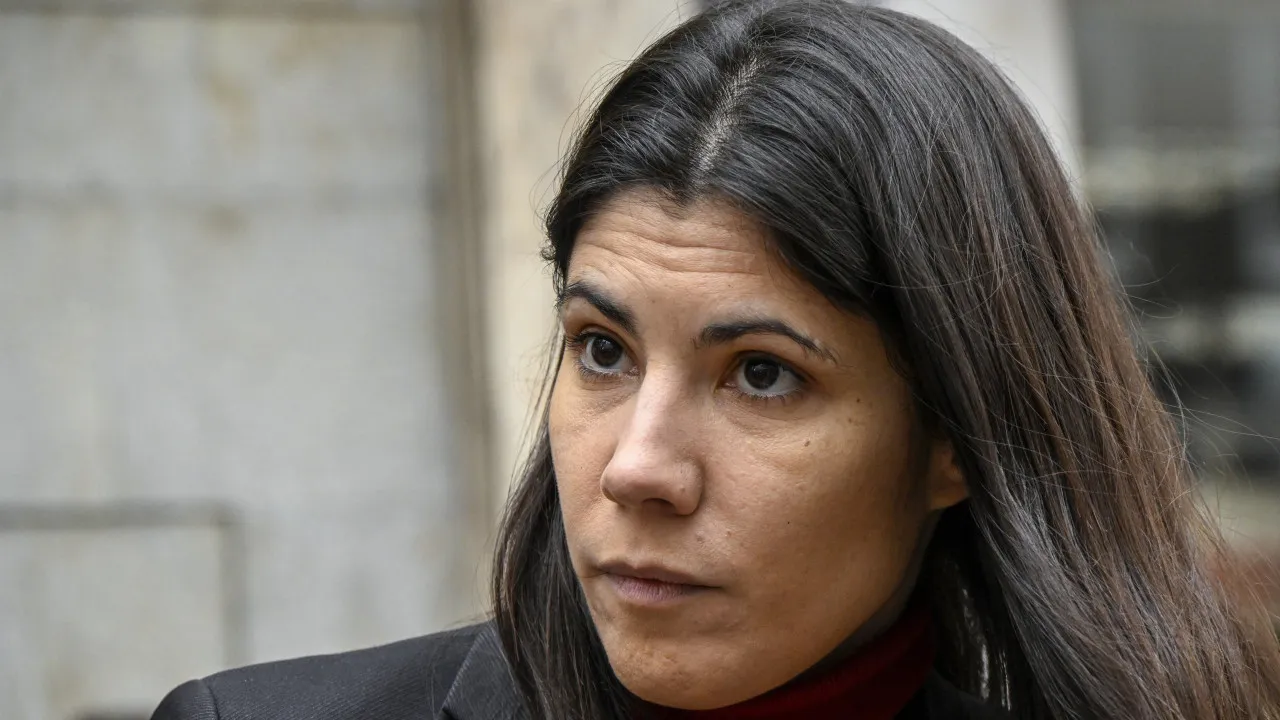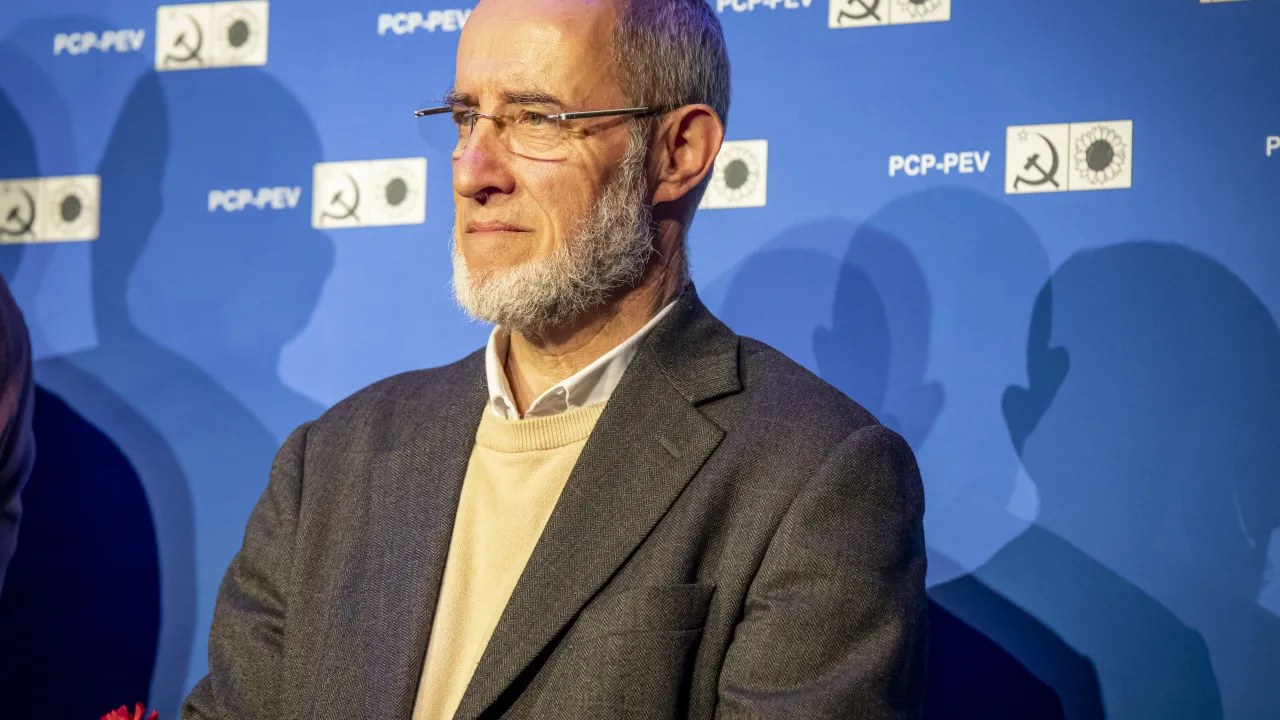
Renewable energy sources are being considered as a key to achieving energy independence, and questions are being raised about their role during the Iberian blackout in April across the Iberian Peninsula and the current status of renewables in Portugal.
These were some of the issues discussed by Pedro Amaral Jorge, the president of the Portuguese Renewable Energy Association (APREN), in an interview where he also argued that the integration of renewables positively impacts the final electricity bill for consumers.
Amid a complex geopolitical landscape, Pedro Amaral Jorge highlights the European Commission’s energy targets and plan, emphasizing the necessity of electrification for Europe to achieve energy independence.
How is Portugal doing in terms of renewable energy?
From the perspective of renewable energy incorporation in electricity production, we are doing well. Last year, we achieved a cumulative 80% of electricity production from renewable sources in Portugal. This year, up to May, we have reached about 81%, so in terms of incorporation in production and consumption, we are doing well.
However, there are still areas needing improvement in final energy consumption, but we are moving in the right direction.
Energy consumptions today derived from fossil sources must transition to renewable sources
We have committed to having 51% renewable energy in final consumption and over 85% renewable electricity by 2030. Achieving this is feasible on the electricity front, but we need collaborative efforts to extend this to energy consumption as a whole.
When you mention areas needing improvement, to what specific enhancements are you referring?
Current fossil-based energy consumptions must switch to renewables. We need direct electrification of renewable consumption and explore other renewable energy sources, such as non-biological origin renewable fuels for aviation and maritime transport, and green hydrogen for renewable ammonia production. Thus, we must enhance renewable incorporation not only in direct electricity consumption but also in indirect electrification.
To achieve this, familiar challenges include implementing long-term electricity production contracts, such as CFDs [Contract for Difference] and PPAs [Power Purchase Agreements], expediting licensing for production and consumption of electricity from renewable sources. We must also ensure comprehensive territorial management without neglecting our commitments to the European Commission and prioritize community involvement in energy transition. Accelerating the implementation of these points by 2030 is crucial, as the energy transition doesn’t end in 2030 and extended goals are already being drafted for 2040.
The more renewable energy in the wholesale market, the lower the electricity price for the final consumer
Do you believe the points you mentioned align with the current government’s priorities?
This energy agenda is a commitment by Portugal as an EU member state, rather than a specific government. We set these targets under the previous Socialist Party government and reinforced them with the prior Democratic Alliance government. Given the current government composition remains the same, we seem to be on track to honor the commitments made to Brussels, the European Commission, the European Parliament, and the European Council.
Moving back to the share of production and consumption that renewables represent, how do they impact consumer bills?
Consumer tariffs comprise four parts: the energy component, network component, taxes and international economic costs, and commercialization costs. Renewables play a crucial role by reducing the energy component of the electricity tariff. Hence, increasing renewable presence in the wholesale market drives down electricity prices for the final consumer.
Relying on fossil fuels amidst Middle Eastern instability and under [former US President Donald] Trump’s administration would be a severe mistake
This is expected to evolve as long-term contracts prevail over daily or intraday options, improving price predictability and reducing consumer energy costs.
Renewable electricity producers strive daily to minimize production costs but have no influence over other tariff components.
The critical energy component involves cost, environmental issues, and energy sovereignty, as highlighted by our current geopolitical context. Relying on fossil fuels amidst Middle Eastern instability and under [former US President Donald] Trump’s administration would be a severe mistake for both Portugal and Europe.
How can renewables mitigate this price volatility, considering the complex geopolitical situation, particularly due to recent developments between Iran and Israel?
Electricity generated from renewable sources and other renewable energy products have a significant benefit: they do not depend on fossil fuel imports and are ‘produced’ by electrocutors located across Europe.
European energy independence is impossible without renewables
Once Europe controls its energy resources, it can set pricing policies and cost strategies, leading to predictable electricity costs over 10 to 20 years.
By investing in energy control within EU borders, Europe can manage costs and is not vulnerable to OPEC [Organization of the Petroleum Exporting Countries], which exploits geopolitical factors to reduce supply and hike prices.
In essence, it provides more independence…
Considerably more. The entire package aims to achieve environmental, cost reduction, and energy independence objectives by focusing on these three key areas.
European energy independence is impossible without renewables, without renewable energy production, and subsequently, ancillary value chain energy production.
Hydropower remains the largest renewable energy source at present
Regarding renewable energy sources, to what are we referring, and what is Portugal’s largest renewable energy source currently?
Currently, hydropower remains the largest renewable energy source, followed by wind, photovoltaic, and bioenergy. Our goal is to balance a third each of hydro, wind, and solar power, complemented by biomass, bioenergy, and waste energy.
Concerning the energy blackout in April, the Spanish government’s investigation reveals that renewables did not cause the incident. What is your take on this conclusion?
It seems apparent. Advocates of fossil fuels and nuclear energy quickly blamed renewables for the system’s failure, but it was evident that the network management caused the imbalance, regardless of whether it originated from a renewable or non-renewable source.
There was a strong bias against renewables from those persistently opposing them. However, no specific renewable plant was responsible for the issue.
On that day, the Iberian market exhibited greater renewable integration, and no similar incidents occurred. Although the exact cause is undiscovered, indicators point towards network management, not a failed power delivery from a producer.
How can renewables help prevent similar situations in the future?
Existing hydropower blackstart plants illustrate renewables’ potential, and plans are underway for up to four blackstart facilities, with three hydropower plants proposed by the government and global system manager. Renewables offer instant access to a nominal power output.
Does the blackout underscore the need to strengthen electricity interconnections in the Iberian Peninsula and with the rest of Europe?
The European Commission’s plan calls for a highly electrified system as the most cost-effective energy supply method. It specifies increasing renewables, electrification, and interconnections among member states, directing the future path.
The blackout is an engineering issue, not one of faith
In practical terms, what does electrification mean?
This involves transitioning transportation from fossil fuels to massive renewable electricity use. Domestic gas systems for boilers should switch to electrification, while heat pumps fulfill thermal needs. Large energy-consuming sectors, like ceramics and glassmaking that traditionally used natural gas, should adopt direct electrification through available technologies. Essentially, former fossil fuel consumption shifts to predominantly renewable sources.
Given your industry insights, can similar blackouts be prevented? Is their recurrence likely?
Consider the blackout an engineering issue, not faith-based. Integrating more renewables requires adapting network management systems with storage and consumption flexibility to avoid disruptions.
I don’t foresee frequent blackouts, quite the opposite
Is having a 100% reliable system against any blackout feasible? Yes, but the consumer cost would be exorbitant. If encountering a blackout every 25 years is manageable, then it’s not catastrophic. Similar prolonged interruptions occur in the US, and the economy endures.
A robust, resilient electrical system is needed, with regulators mandating service quality levels for network operators. Instead of frequent blackouts, this incident demonstrates efficient network management with one blackout in 25 years, not annual occurrences. Lessons from this event can further refine electrical system management, minimizing such phenomena.
Recent wet years benefit Portugal’s electric system, aiding consumers
Why would a 100% reliable system raise consumer costs?
Insurance offers a set of conditions or a health policy with terms. Covering all conditions doesn’t yield a standard policy—cost may escalate exponentially compared to standard agreements covering most risks.
Engineering solutions target minimizing events by 99%, but achieving 100% is not feasible, as infallibility doesn’t exist. Minimizing costs significantly is irrational because the rare 1% of occurrences can be managed effectively, as shown.
Lastly, how might climate change affect renewable energy production?
Historical data predicted gradual but eventual desertification. However, recent years’ likely climate change-induced precipitation benefits Portugal’s electric system and electricity consumers.
The more hydropower in the system, the more robustness we achieve when integrating wind and solar energy. We rank among the top three European countries for renewable integration, reducing electricity costs and attracting investment.




